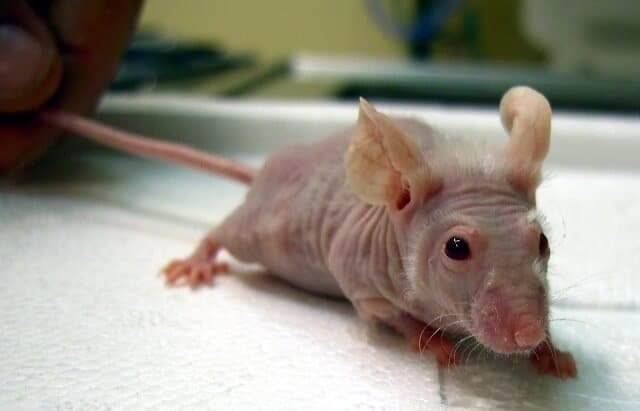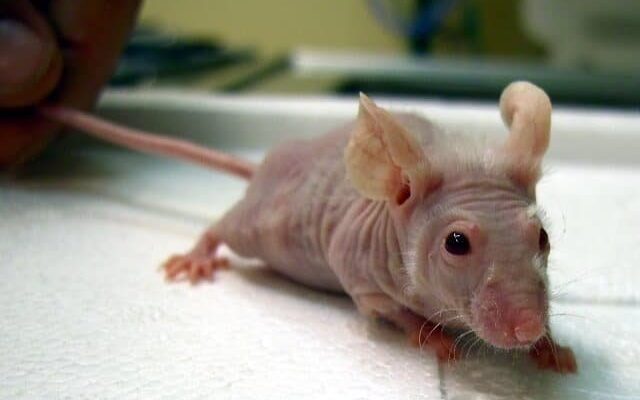
Hairless mice, often called *hairless* or *Chinese* mice, are specifically bred to have little to no fur. Their bare skin gives them a distinct look that can be cute and interesting. If you’re pondering whether a hairless mouse could be a good addition to your home, let’s dive into the pros and cons. By the end, you’ll have a clearer idea of whether these little guys are right for you.
What’s So Special About Hairless Mice?
Hairless mice aren’t just a novelty act; they have characteristics that set them apart from other common pets. First off, they’re incredibly social creatures. If you’ve ever seen a regular mouse nibbling on a snack or scurrying around its cage, you’ll appreciate how lively these little guys can be. They thrive on interaction, making them entertaining to watch and handle.
Another special trait is their unique appearance. With their smooth skin, hairless mice can feel like tiny, warm beans in your hand. It’s a sensory experience that’s different from petting a furry animal. Plus, some people with allergies might find them more suitable than traditional pets, as they don’t produce fur that can trigger reactions.
Lastly, hairless mice are known for their curious nature. They love to explore their surroundings, which means you’ll often find them investigating every corner of their cage. This inquisitiveness can be a source of joy for any pet owner.
Pros of Owning a Hairless Mouse
If you’re thinking about getting a hairless mouse, let’s explore some of the perks that come along with these quirky pets.
1. Low Maintenance
One of the most significant advantages of a hairless mouse is their relatively low maintenance compared to other pets. They don’t require daily walks like dogs, and their diet primarily consists of a small amount of quality mouse feed combined with fresh vegetables. Cleaning their cage is straightforward—just make sure it’s done weekly to keep things fresh.
2. Small Space Requirement
Need a pet that fits into a smaller living situation? Hairless mice are the perfect fit. A small cage with some bedding, a few toys, and a hiding spot is typically all they need. This makes them ideal for apartment living or homes where space is at a premium.
3. Affordable
Hairless mice are often much less expensive to adopt or purchase compared to larger pets. You might find that getting set up with the right supplies—like a cage, bedding, and food—won’t break the bank. Plus, their healthcare needs are generally minimal, as long as you keep their environment clean and healthy.
Cons of Owning a Hairless Mouse
While the benefits are appealing, it’s essential to consider the downsides too. Here are a few things to keep in mind.
1. Short Lifespan
Hairless mice, like many small rodent pets, tend to have a shorter lifespan—usually around 2 to 3 years. This can be a tough pill to swallow for pet owners who get attached. The fleeting nature of their lives means you’ll have to prepare for grief when their time comes.
2. Potential Health Issues
Due to their breeding, hairless mice can be prone to specific health issues. Some may deal with skin problems, like dryness or infections because they lack fur to protect their skin. Regular monitoring and vet check-ups are a good idea to ensure they stay healthy.
3. Requires Social Interaction
You might be wondering if hairless mice can be self-sufficient. The truth is, they thrive on social interaction. If you plan to keep just one, you’ll need to dedicate time to handle and play with them. Otherwise, boredom can set in quickly, leading to stress or unwanted behaviors.
Comparing Hairless Mice to Other Small Pets
If you’re still on the fence, it might help to see how hairless mice stack up against other small pets like hamsters or guinea pigs.
1. Hamsters
Hamsters can be adorable and are often more independent than hairless mice. They don’t require as much social interaction, making them great for busy owners. However, they can be nocturnal, which means they might be more active when you’re trying to sleep.
2. Guinea Pigs
Guinea pigs are social animals as well, but they need more space and are generally more expensive to care for. They’re also larger than hairless mice, which can be a factor if you’re looking for a pet that fits comfortably in a smaller environment.
3. Gerbils
Gerbils have a similar care level to hairless mice but often have fur. They’re active and curious, like their hairless counterparts, but they don’t require the same specific attention to skin care. If allergies are a concern, a hairless mouse may be a better option.
How to Care for Your Hairless Mouse
Now that you’re familiar with the pros and cons, let’s talk about how to care for these unique pets. If you decide to bring one home, you’ll want to set up a cozy environment.
1. Choose the Right Cage
A solid, well-ventilated cage is crucial. Look for one with multiple levels if possible, as hairless mice love to climb. You’ll want to include bedding made from safe materials, like aspen shavings or paper-based products. Avoid cedar or pine shavings, as they can be harmful.
2. Monitor Their Temperature
Since hairless mice don’t have fur to keep them warm, it’s important to monitor their temperature. Keep their cage in a comfortable room and consider using a heat lamp if necessary. Just make sure it’s positioned safely to avoid overheating.
3. Regular Health Checks
Keeping an eye on your mouse’s skin is essential. Look for any signs of dryness or irritation. If they seem to have trouble grooming themselves (which they will, since they lack fur), a gentle wipe with a damp cloth can help.
Finding a Hairless Mouse
If you’ve decided that a hairless mouse is the pet for you, you might be wondering where to find one. Here are a few options:
1. Pet Stores
Many pet stores carry hairless mice, but selection can vary. It’s always a good idea to call ahead and see if they have them in stock.
2. Breeders
You might also consider finding a reputable breeder. Professionals can often provide specific details about the mouse’s lineage and health history. Just make sure to ask for references and check reviews.
3. Animal Shelters
Don’t forget about local animal shelters or rescue organizations. While hairless mice might not be as common in shelters, you might get lucky or discover other fantastic small pets looking for a forever home.
Final Thoughts on Hairless Mice as Pets
So, is a hairless mouse a good pet for you? It really depends on your lifestyle and what you’re looking for in a companion. If you appreciate a low-maintenance, social pet and are ready to provide the care and attention they need, you might just find a loyal friend in a hairless mouse.
They offer quirks and charm that can brighten your day. Just remember the potential pitfalls, and be committed to their short lives and health needs. If you’re ready for a unique pet experience, a hairless mouse might just be perfect for you!

